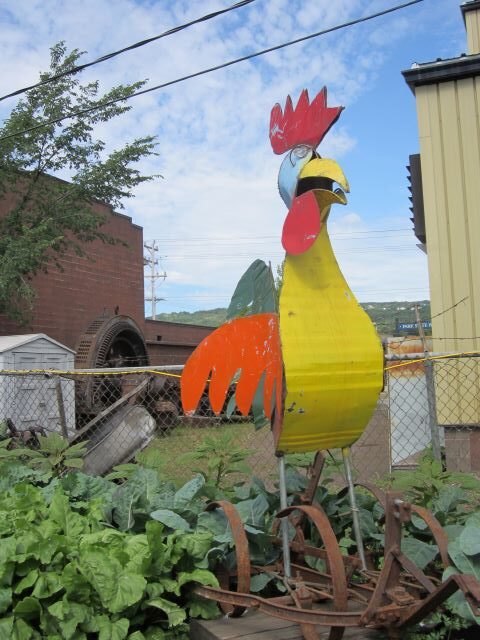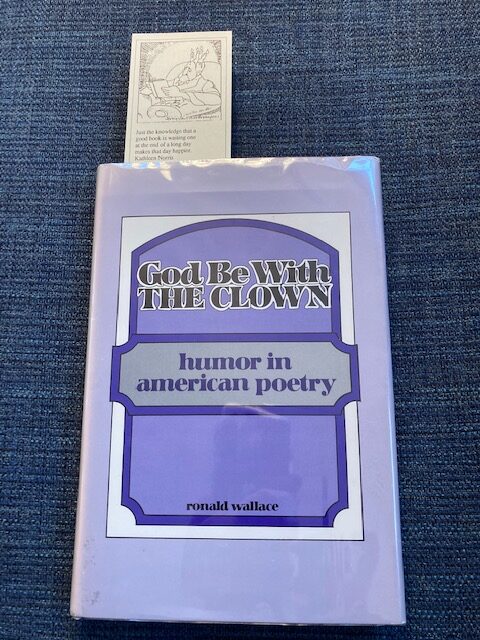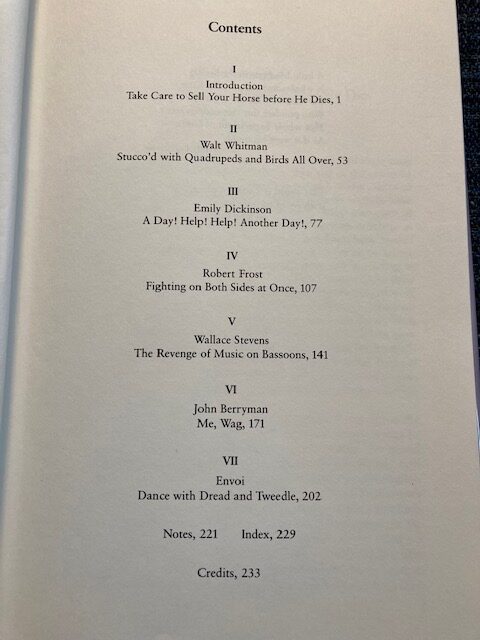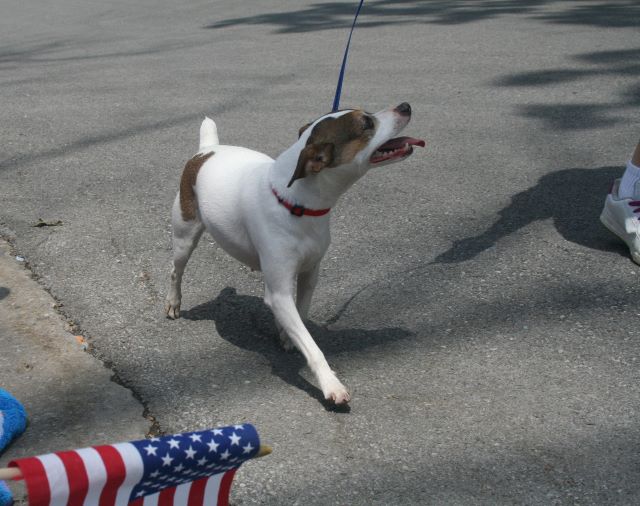


Lately, I have been doing some deep cleaning and sorting of the books on my poetry shelves, letting some go and keeping some, but giving each a real perusal before deciding. One I am not only planning to keep but am quite eager to reread is a collection of essays by Ronald Wallace called God Be With the Clown: Humor in American Poetry, (University of Missouri Press, 1984). Ronald Wallace was the director of the Creative Writing Program during my time at the University of Wisconsin-Madison, and a poet who has a true funny bone, as well as deftness with every other poetic tone and key. I agree that it is swimming against mainstream currents to rank poems that are light-hearted and funny as higher (and sometimes higher) than angsty and dark poems. Certainly, to do anything like reflect the world we need scads of all kinds. (I do not forget the middle ground of the quiet lyric, for example.) Wallace asks the question of why Eliot’s “Wasteland” is exalted by critics when little analytical ink is spent on his “Old Possum” cat poems. Wallace has a cogent mind, an engaging prose style, and a true understanding of the crying need for humor at times. (As an example, consider just the title of one of the many poems he wrote for his father, paralyzed for decades with Multiple Sclerosis: “After Being Paralyzed from the Neck Down for Twenty Years, Mr. Wallace Gets a Chin-Operated Motorized Wheelchair,” from his first collection of poems, Plums, Stones, Kisses & Hooks, (University of Missouri Press, 1981).
Context for My Poem, “‘See You in the Funny Pages'”:
Ronald Wallace cites Emily Dickinson as one of his earliest influences, and to that I can say “Ditto.” In looking over his collection of essays, I was struck by how the title is drawn from Dickinson’s poem “A Little Madness in the Spring” (1356). And then, I remembered a collection of humorous sketches, Without Feathers, by Woody Allen that my best friend, Traycee, and I rolled with laughter over back in high school. It, too, draws its title from a poem by Emily Dickinson, “Hope–is the thing with feathers” (314). I encountered the Allen before the Dickinson, odd as that is to recall.
Today, I was thinking about humor in general, specifically how about how it seems to me to be at once very personal and also generational. My poem isn’t humorous but it looks back to the times in childhood and then in high school when I was learning how there can be a gap between what is held up as humor seems either strained or bafflingly pedestrian or simply crass or even downright cruel to one without the right frame of reference to receive it. (For me, the old films of The Three Stooges fall into all of these categories, while the Marx Brothers often transcend them through grace, with, and wordplay surprises. My own personal “list poem” today might cause you to think about your own favorites. If so, I would be delighted to know what strikes you as “funny Ha-Ha.”
Until tomorrow, LESLIE


Thank you, Beth! May a belly laugh surprise you today!
Ahhh the power of humor! I have heard of Ronald Wallace and I”m pretty sure have spent time with his poems at certain points. (Likely thanks to you.) Love that he valued humor on par with everything else. It has been a life saver these last trying years, hasn’t it?
And your poem! So much fun to think about lying on my belly and reading the Sunday comics and rolling over with laughter now and again. A very happy memory and I thank you for that!
Hi Lynn,
Ah, I recall the youthful occasion of the old-seeming 30th birthday! Had forgotten about that.
And I love your metaphor of the tapestry with threads to pull…Thank you!
Leslie
Thank you for introducing me to Ronald Wallace Leslie. I also loved “Hope is the Thing with Feathers” and remembering giving it to a dear friend on her 30th birthday, We thought we were “old” then !
Thank you again for providing such a rich tapestry of threads for me to pull on as you set the stage for your poem of the day.
Lynn